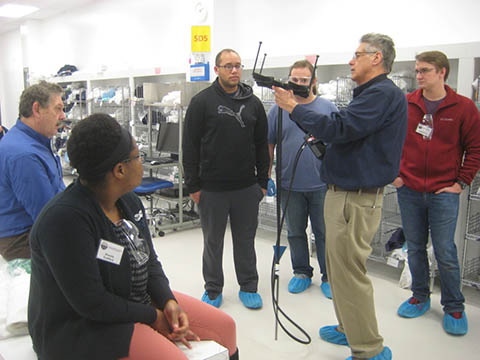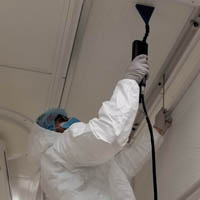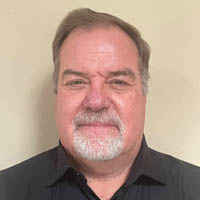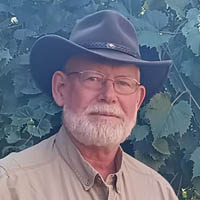Training
MBTS offers a variety of technical training programs. Classes are given that are open to the public or at a customer work site. The course content can be tailored to your particular applications and tool sets.
Each class is tailored to take into account the preparation of the student and the type a capability in the student after the class that is desired.
Individuals should inquire about the time and location of the next class. Companies that want to have an on-site training program should call for a discuss of goals and needs, from which a proposal will be developed.
BASIC VACUUM—3 to 6 hours
A general introduction to vacuum technology for people with little vacuum experience. The training includes a description of the commonly used tools and the basic physical principles that govern working in a vacuum.
Topics include:
- Basic Concepts
- Generation of Vacuum
- Vacuum Measurements
- Residual Gas Analysis
- Leak Detection
- Valves and Components
- System Configuration
- Good Practices
LEAK DETECTION–4 to 6 hours
This class covers the basic theory of tracer gas leak detection, how to perform leak detection, equipment maintenance and a hands of session with a helium leak detector.
Topics include:
- Basic Leak Detection Theory
- Use of a Helium Leak Detector
- How to Look for Leaks
- How to Maintain the Leak Detector
RESIDUAL GAS ANALYSIS
This class is about using a quadrupole mass spectrometer to do residual gas analysis in a vacuum system. A mass spectrometer is the only way to measure what types of gases are left in a vacuum chamber when it has reached base pressure.
It is an excellent diagnostic tool for understanding how a vacuum system or vacuum process is running.
Topics Include:
- How a mass spectrometer works.
- How a mass spectrometer is used for vacuum system analysis.
- Key principles required to successfully operate a mass spectrometer.
- Interpretation of simple mass spectra.
- Strategies for employing a mass spectrometer to do process control.
PRESSURE MEASUREMENT–2 to 4 hours
Mechanical methods cannot be employed to measure pressures below 1×10-4 mbar. Using thermal conductivity and ionization potential to measure pressure requires a detailed understanding of the related physical chemistry principles.
Topics include:
- Pressure gauges don’t measure pressure.
- The physics of pressure measurement.
- Types of instruments employed to measure pressure.
- How to use the various types of gauges.
- Maintenance of gauges

VACUUM PUMPS—2 to 4 hours
There are many different types of vacuum pumps that are used for different applications. This is a discussion of the types of vacuum pumps by physical operating principle, applications, maintenance.
Topics include:
- Different physical pumping principles.
- Applications details.
- Hazards
- Maintenance
VACUUM SYSTEM DESIGN—1 to 2 hours
This is a general introduction to how to configure and design a vacuum system. It covers the concepts at a high level and is intended to help students choose what additional training is appropriate for a particular task.
Topics include:
- Typical vacuum system configuration.
- Typical components
- Rules of thumb to guide configuration
- Review of automated tools
- CAD
- FEI
- Importance of applying enough, but not too much, detail in specifications.
CLEANROOMS AND CONTAMINAITON CONTROL—2 to 6 hours
This is a general overview of what is required to specify and work in a controlled environment. Simply following the ideas laid out in textbooks will result in an overly expensive and time-consuming clean room build. This class aims to achieve an appropriate amount of rigor in the clean room specification.
Topics include:
- General cleanroom configuration.
- Operating principles.
- Enough but not too much in cleanroom design and specification.
- Cleanroom maintenance.
- Training cleanroom workers.
CONTAMINATION CONTROL IN VACUUM PROCESSING—1 to 2 hours
There are many sources of contamination in vacuum processing equipment. This talk identifies typical sources of contamination and what can be done to mitigate those problems.
Topics Include:
- Sources and types of contamination in vacuum processing.
- How that affects the vacuum process.
- Instrumentation to quantify and problems.
- Tools for mitigating contamination.
- Design principles to apply to minimize contamination generation.
SPECIAL TOPICS
Training packages can be developed for other topics. Some examples include:
- Use of RGAs in Fuel Cell fabrication and testing.
- Setting up for bomb type component leak testing
- Pumping hazardous and abrasive gasses.
- Optimizing vacuum pump maintenance procedures.
- Process control techniques: Statistical Process Control (SPC); Total Productive Maintenance (TPM) and Overall-Equipment-Effectiveness (OEE).
Ralph Kraft
Specialties:
Consulting, 3rd Party Certification Training, ISO 17025 Accredited
Reggie Ulrich
Specialties:
Navac Vacuum Pump Supplier
Helium tracer gas leak detection
Residual gas analysis
Vacuum problem solving
Terry Rogelstad
Specialties:
Navac Vacuum Pump Supplier
Helium tracer gas leak detection
Residual gas analysis
Vacuum problem solving





